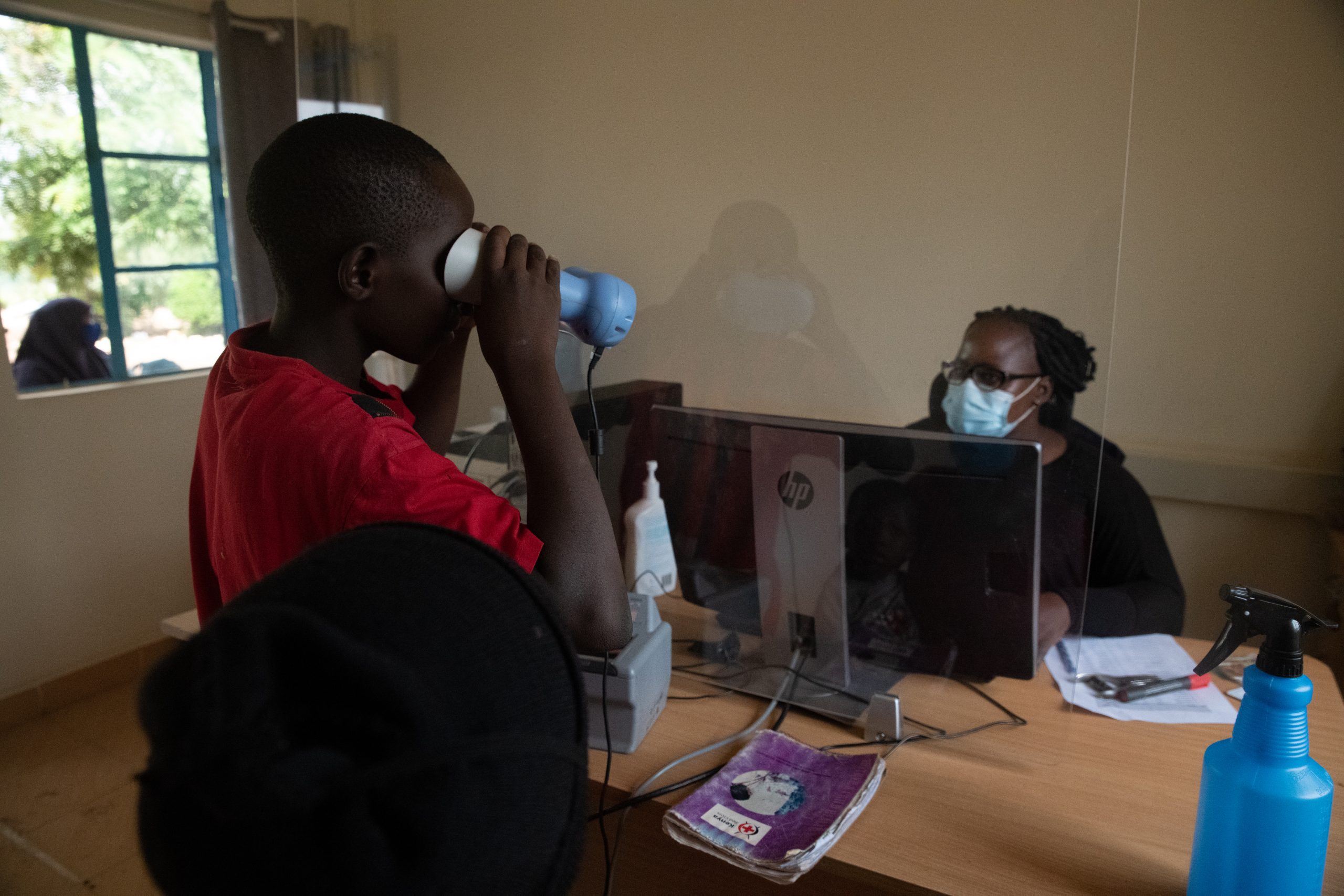
Snapshot
Entities sharing this good practice: Refugee Affairs Secretariat (RAS) and UNHCR Kenya
Submitted by: Mr. Joseph Kotolo, Refugee Affairs Secretariat and Ms. Maja Pedersen, Associate Partnership Officer (UNHCR)
Partners: UNHCR Kenya
Visit their website: https://refugee.go.ke
In Kenya, the responsibility for implementing the Refugees Act, 2006 (Refugees Act) and its Refugees (Reception, Registration and Adjudications) Regulations, 2009 lies with the Refugee Affairs Secretariat (RAS) in the Ministry of Interior and Co-ordination of National Government.
Under the Refugees Act, refugee status determination (RSD) at the first instance level is the responsibility of the Commissioner for Refugee Affairs (CRA) who is the authority with responsibility to determine asylum claims on an individual basis.
The Technical Advisory Committee (TAC) was put in place to advise the CRA on RSD decisions. The TAC is comprised of staff from RAS in the Government of Kenya and UNHCR Kenya. Case-workers’ RSD assessments are reviewed by designated RSD reviewers prior to being presented to the TAC. The aim of the monthly TAC meetings is to serve as a link between the caseworkers and the CRA, to examine the legal basis upon which RSD recommendations have been made, and to identify and address potential inconsistencies, gaps and weaknesses in RSD recommendations before they reach the CRA for final endorsement.
There is typically no limit to the number of cases which the TAC can consider per session. The cases are mainly presented in the form of profile-based lists of cases which are recommended for recognition (e.g. a list of cases which have the same nationality and legal basis for recognition, or a list of cases falling into the profile “Derivative Status”). A small number of cases are presented individually (i.e. not listed under an overarching profile); this is necessary where there are few applicants from that nationality, or where required by precedent or RAS’ processing guidelines. Furthermore, all cases which are recommended for rejection are presented individually, with the grounds for rejection presented to the TAC for deliberation in order to allow the TAC to ensure that the recommendation to reject is in line with the provisions of the law.
When the first COVID-19 cases were confirmed in Kenya in March 2020, preventive measures were put in place to limit the spread of the virus. One of these measures included Government staff working from home. The TAC meetings could therefore no longer be held in-person. TAC sessions were quickly adapted into a virtual format to ensure continuity of decision-making. RAS and UNHCR mutually understood the need to proceed with specific RSD activities as per the business continuity plan, particularly activities that could be conducted virtually, such as the TAC. The first virtual TAC meeting was held in April 2020.
Prior to each virtual TAC meeting, all of the case recommendations/profiles to be considered are shared with RAS representatives and UNHCR eligibility teams through email. These documents are saved in a central folder which is specific to the particular TAC meeting (e.g. TAC 01 2021). During the TAC meeting, the TAC members examine all the documents to ensure quality control and (upon the approval of the TAC) the case recommendations/profiles are then submitted to the Commissioner for Refugee Affairs for his endorsement. Except for the preparation process (sharing of casefiles instead of physical folders) this process has remained the same despite the virtual TAC meeting modality.
Before making the decision to conduct the TAC meetings virtually, several considerations and discussions took place regarding the potential risks and challenges, notably confidentiality considerations. These risks were mitigated inter alia by ensuring that TAC members were well-trained in operational standards and procedures for handling official information, as described in the Standard Operating Procedure (SOP) on RSD.
1,742 RSD recommendations have been endorsed by the CRA in 2020 since the onset of virtual TAC.
Pre-COVID-19, TAC sessions had already been partially virtual: some RSD colleagues would attend physically in Nairobi, while others would attend virtually from other areas of Kenya (Kakuma and Dadaab). TAC members have quickly adapted to the 100% virtual format which has proved to be more efficient, with less technical hiccups and allowed for greater flexibility. Less time is now spent on waiting for colleagues to physically attend the meeting and/or solving the connectivity issues which occasionally arose from the previous 50/50 physical and virtual meeting format. The 100 % virtual format allows for a run-through and presentation of each profile on a joint screen, more structured and coherent proceedings, less time spent on preparing for the monthly meetings, less time and resources spent printing and disseminating case files, reduced complexities in terms of booking meeting locations and setting up call-in systems ahead of meeting.

Recent Comments